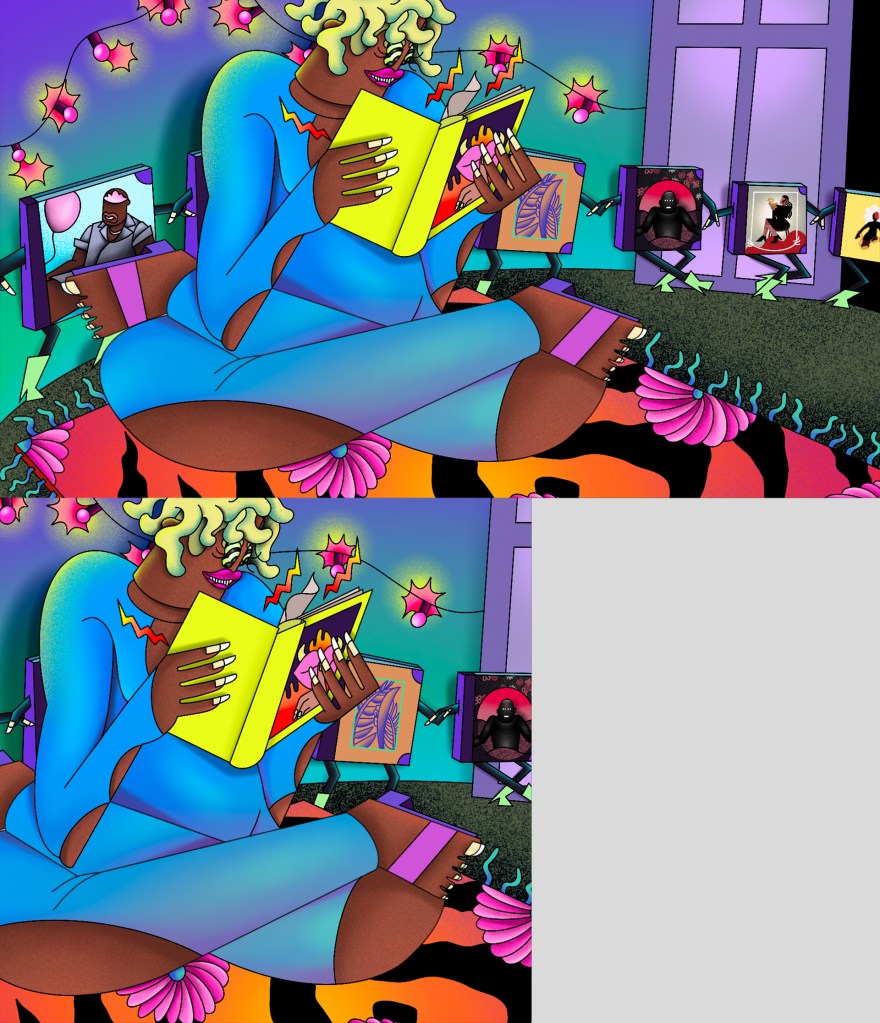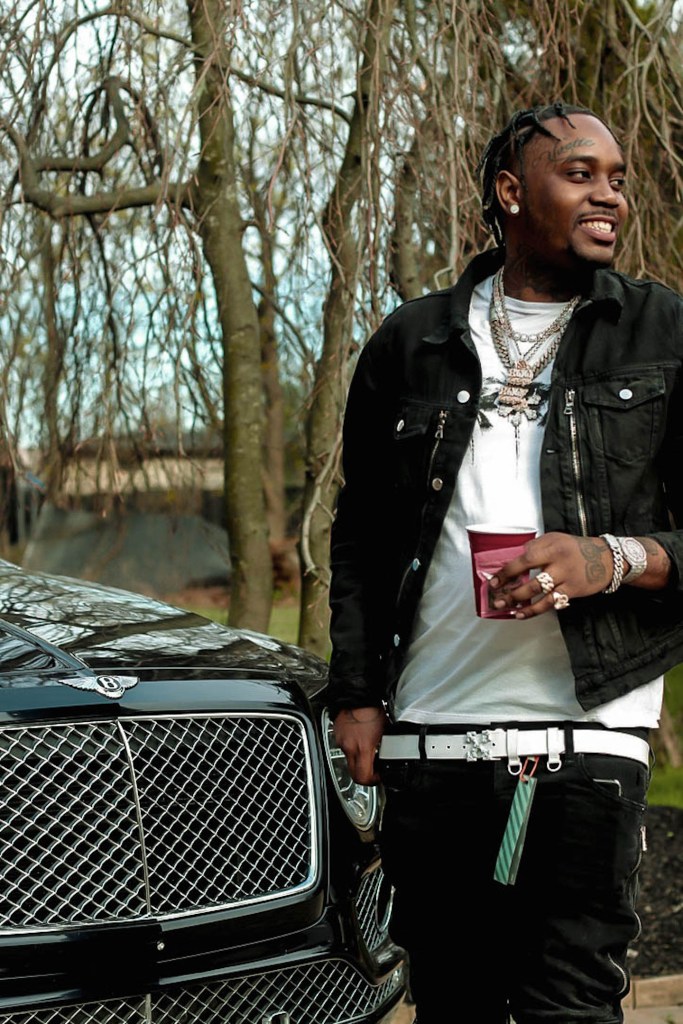In 2005, Mariah Carey was telling us to “Shake It Off,” offering fans a velvety soundtrack for riding off into the sunset in an old flame’s car. Last week, the song’s main vocal melody and easygoing beat made an unexpected return—this time via an interpolation by Baltimore rapper YTK, who used the same Jermaine Dupri production to instruct us to “Let It Off.”
It wasn’t exactly a faithful recreation of the original: For one, the video is a lot less glamorous than the post-break up anthem Carey sang on The Emancipation of Mimi. YTK and his friends perform the song wearing ski masks and with guns drawn; Carey’s signature “ooh, ooh” is swapped for “shoot, shoot” and punctuated with “click clack bow” adlibs. “Bitch, I’m posted with the gang,” YTK sings. “Better not hear you say my name / Before my niggas blow your brain.”
Videos by VICE
When user @rnbtommy tweeted, “Mariah Carey has 24 hours to respond,” she obliged with a clapback of her own. “How about y’all have 24 hours to respond to my lawyers,” she wrote, ending the tweet with a heart emoji. Elsewhere on Twitter, Questlove revealed he is reportedly trying to help YTK get the sample cleared.
As catchy as “Let It Off” is, it feels like just another example of a young rapper taking a classic pop or R&B production and personalizing it with cheeky and often violent imagery—a phenomenon we’ve been seeing since at least as far back as OT Genasis’ parody style covers last year and Shawn P’s viral remix of Natasha Bedingfield’s “Unwritten” from last month. These songs are natural crowd-pleasers—combining the nihilistic raps that people flock to in artists like Pooh Shiesty with the nostalgia of our youth.
But, a closer listen proves that the trend, which Florida rappers Yungeen Ace and Foolio have played a leading role in popularizing, may be a lot more menacing than it appears. By the time you arrive at the bottom of this pop rap rabbit hole, the songs, and the implications behind them, feel a lot more morbid than simply listening to remixes of memorable hit records from the early-aughts.
In March, Yungeen Ace, along with fellow Jacksonville, Florida rappers Spinabenz, Whoppa Wit Da Choppa, and FastMoney Goon, released “Who I Smoke,” a posse cut which sampled Vanessa Carlton’s “A Thousand Miles.” Carlton, for her part, had a complicated relationship with the song, telling VICE that she “hated” it “for years.” But we can probably thank Terry Crew’s performance in the 2004 comedy White Chicks for introducing Black audiences to its cheesy, sickly sweet charm—a quality that made the song the perfect fodder for OT Genasis’ parody rendition.
“Who I Smoke” leans on the golf course aesthetic, like a slew of music videos before it, but quickly pulls a bait and switch. “When I see you I’ma push yo shit back, boy,” Spinabenz raps. That opening line is just the beginning of how deep the insults cut, and by the time the song arrives at the hook, it’s downright disrespectful. The group starts naming names, which, according to Genius annotations, are the names of deceased Florida teens. By the end of the song, you realize that as a listener we have stepped in the middle of some mess and this isn’t about fun and games at all.
Last month, Foolio went the R&B route instead, revamping Fantasia’s 2006 classic “When I See You.” If “Who I Smoke” is disrespectful, Foolio’s remix sees the rapper going the extra mile and calling out Ace directly. “Ace from the west, how he clicked up with the east side? / He ain’t been the same since he seen the other three die,” he raps. Visually, Foolio doesn’t take the cinematic route that “Who I Smoke” does, instead using a cemetery as his backdrop. But that’s not even the most eerie part. The track includes the audio of a news broadcast of the shooting Foolio raps about throughout the song. It’s a story that Yungeen Ace has shared publicly, about the death of his brother and three of his friends.
In 2019, Yungeen Ace went on DJ Vlad’s YouTube channel and detailed the events of what happened the night his brother, Royale Smith, died. Ace says he and a group of friends were leaving dinner after celebrating Smith’s 18th birthday; as they sat at a red light, gunfire erupted. “I tried to shield him and shit, make sure he was good, but I couldn’t shield everybody though,” he said. “I tried to shield him and get out at the same time because we were trapped in… I ain’t gon lie, that shit still fuck with me though.”
Watching these videos, it’s hard not to worry about the young men who populate them: young rappers whose cleverness is matched by their candor, the same candor that inspires them to open up about their traumas for DJ Vlad, and others like it, to exploit. While we are thoroughly enjoying hearing how rap can exist on just about any beat, it doesn’t take much to deduce what could happen next. Rap fans are all too familiar with how police surveil artists, using their lyrics to connect them to crimes, as seen in the cases of Bobby Shmurda in 2014 and Drakeo the Ruler last year. Worse, we have the stories of XXXTentacion, Pop Smoke, and King Von to remind us of the dangers of mixing what happens in the streets with virality. Neither outcome is worth the hype of millions of views.
Kristin Corry is a Senior Staff Writer for VICE.




